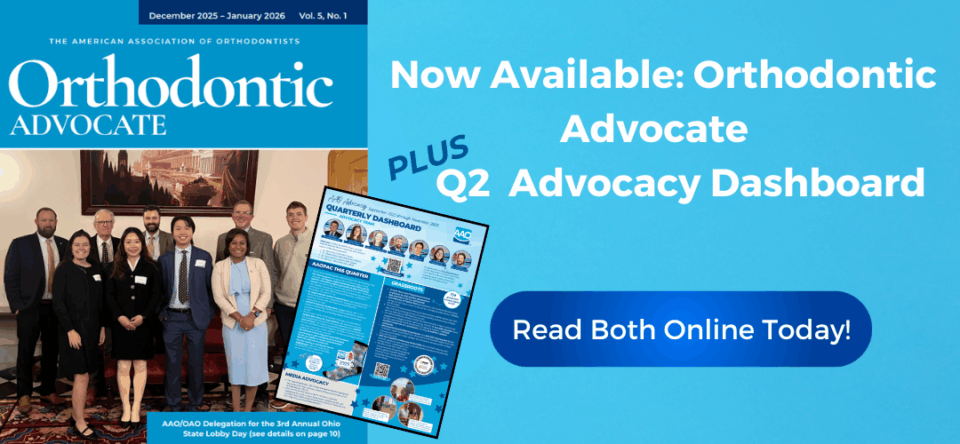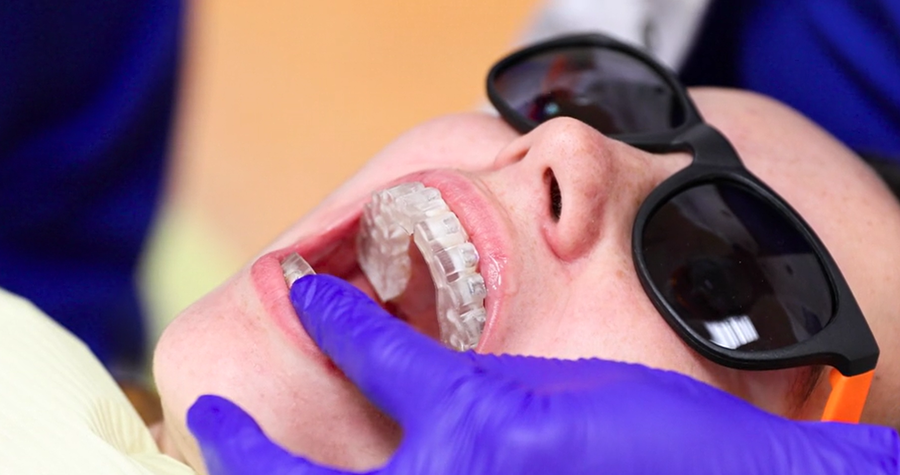The AAO recently reported that several AAO members and AAO staff met in Washington, D.C. during the summer with key leaders at the U.S. Food and Drug Administration (FDA) with oversight on prescription medical devices, including clear aligners.
The FDA manages the Manufacturer and User Facility Device Experience (MAUDE) database, which is “a searchable database of medical device reports (MDRs) of adverse events involving medical devices over the last ten years.” During the meeting, AAO members shared clinical stories about risks and harms related to direct-to-consumer (DTC) clear aligners with the FDA team, which included dentists.
There is a critical need for AAO members who have seen patients who have experienced adverse events after direct-to-consumer treatment to add at least ONE entry with the appropriate information into the MAUDE database.
Step-by-step, in-depth instructions prepared by the AAO Advocacy team and AAO federal lobbying partners at Cozen O’Connor Public Strategies will guide you through the steps to submit clinical reports and share your stories. The AAO instructional guide for the MAUDE database can be accessed by clicking HERE and is also available on OrthoFacts.org.
After submitting at least one clinical report for the MAUDE database, please notify the AAO Advocacy team about your action by emailing [email protected].
The volume of MAUDE database submissions will inform the FDA’s level of response to the mail-order orthodontic treatment model risks that can include issuing a FDA public warning to patients about treatment with a DTC company without receiving an in-person examination and radiographs first.
This important advocacy work follows the AAO Legal & Advocacy team’s successful leadership and efforts to secure a December 2021 letter from 21 bipartisan Members of Congress to the Government Accountability Office (GAO), requesting the GAO conduct a study of the federal regulation of Direct-To-Consumer (DTC) advertising practices for prescription medical products.
The letter specifically pointed to mail-order orthodontic treatment as well as mail-order contact lenses as two examples of “recent issues within this industry [that have] aroused repeated complaints and calls for each company to be investigated by the Federal Trade Commission and Food & Drug Administration…” The GAO agreed to take up the request in January 2022.
In September 2023, the GAO completed their study and submitted a performance audit to U.S. Congress highlighting the Food and Drug Administration and Federal Trade Commission oversight responsibility for direct-to-consumer advertising of medical devices, including prescription orthodontic devices.
Of note in this report is the FDA’s explanation that one of the primary ways they determine areas to investigate is through complaints submitted directly to the FDA by individuals. AAO members submitting at least one case each to the MAUDE database will make a difference and bring this issue to the forefront of the FDA’s attention.
The AAO annual public policy survey has indicated that 77% of AAO member respondents have seen new patients in their office requiring retreatment after using a mail-order orthodontic treatment model without an initial in-person exam. The FDA would like to learn more from clinical reports about these stories and welcomes this feedback from AAO members and members from other dental organizations with similar experiences to share.
As always,grassroots engagement by AAO members is extremely effective and helps positively move the needle on the AAO’s evidence-based policy priorities.
Addressing patient health and safety concerns relating to mail-order orthodontic treatment models is a top priority for AAO and consistently remains high on the list of ranked issues through our annual AAO public policy survey. The AAO is working continually to address these issues through policy change at the state and federal levels. We are actively seeking your participation in this MAUDE database effort now to make a difference for patient health and safety.



